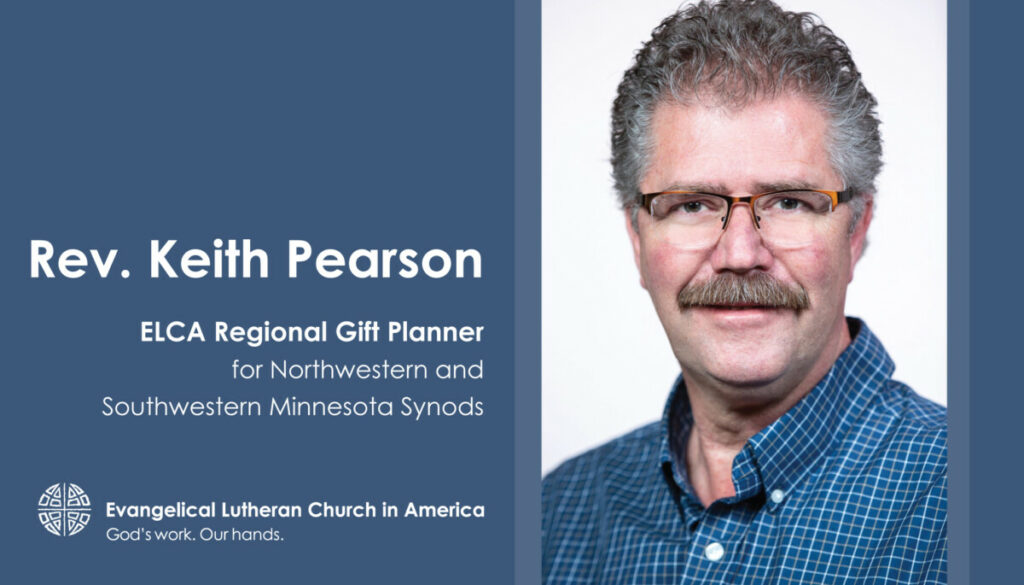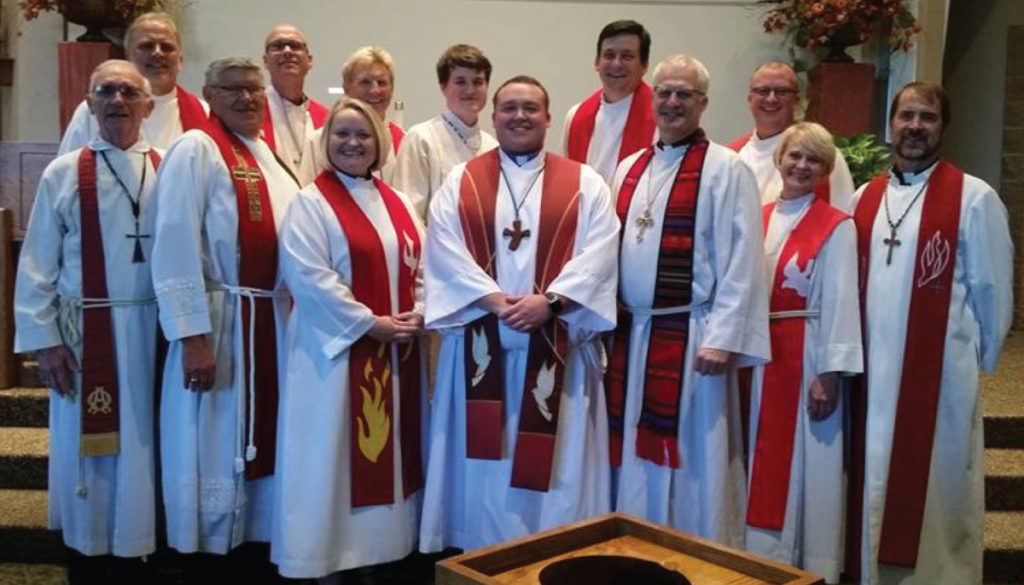By Rev. Keith Pearson, ELCA Foundation
Benjamin Franklin is famously quoted for having written, “In this world nothing can be said to be certain, except death and taxes.” It is a somewhat cynical sentiment many of us share. We begrudgingly acknowledge that both are undesirable, but unavoidable. As Christians we have cause to be a bit less cynical. And as we journey through Lent toward Easter while simultaneously facing the annual tax season, both warrant some contemplation.
Death, for us, is not an ending but a gateway to a life that has no end. It is the culmination of our baptism and the promise of the resurrection we have in Christ Jesus. Although we strive to live long and fruitful lives as God intends for us, when we come to the end we trust that death does not have the final say. Furthermore we acknowledge our responsibility (in life and in death) to look out for the lives of our neighbors, doing our best to assure they too have long and fruitful lives, as free as possible from torment and suffering.
So as a matter of faith we should embrace and enjoy life, but not fear death.
Taxes, although no one’s favorite, are necessary for life this side of God’s final kingdom. They are part of what we ask for in the Lord’s Prayer when we say, “…give us this day our daily bread.” According to Luther’s description of “daily bread” in the Small Catechism we need more than just food and drink, clothing and shelter, etc. we also need “upright and faithful rulers” and “good government.” And those things have a price tag.
So as a matter of faith we should not begrudge paying taxes, but do our best to see that they do an adequate job of protecting and preserving our life and the lives of our neighbors.
In my work as Regional Gift Planner I help congregations develop legacy gifts that fund ministry beyond the lifetime of most givers. I also work with individuals and families to make estate plans that leave a legacy that is much more than just money and possessions. These plans leave a legacy of faith and values.
Admittedly part of what these plans accomplish is the avoidance of some taxes. But I don’t believe this is contrary to our responsibility to providing “daily bread” for our use and for he needs of our neighbors. No, I believe the tax laws that allow such plans are intended to acknowledge the good work of many non-profit organizations. I believe they are meant to encourage people to use these tools to help in the work of caring for the lives of others.
I believe a good estate plan is actually a faithful expression of our Christian view of both death and taxes. It is our final testimony about our faith, and it is our final act of love toward our family, loved ones and our unknown neighbors. We may not be able to avoid death or taxes completely, but we can make the most of both.[clear-line]
Keith Pearson is the ELCA Foundation’s Regional Gift Planner in Western Minnesota. His services are available at no charge to those interested in leaving legacy gifts to local congregations, other ministries of the ELCA, and to charitable causes important to them. He can be reached at 612-718-4197 or keith.pearson@elca.org.



